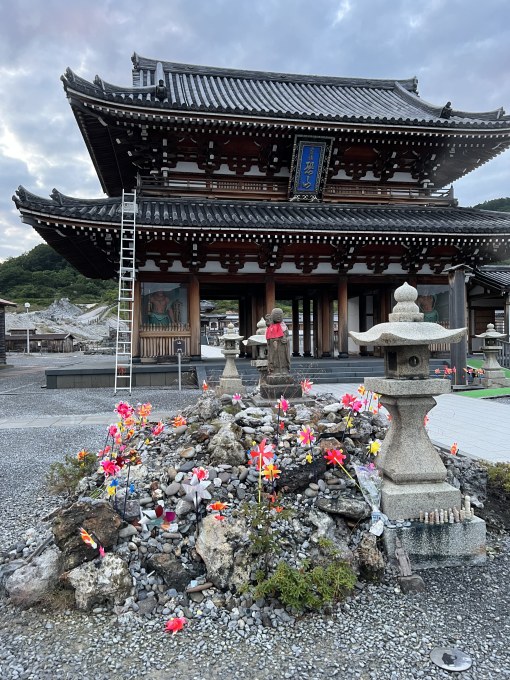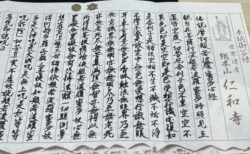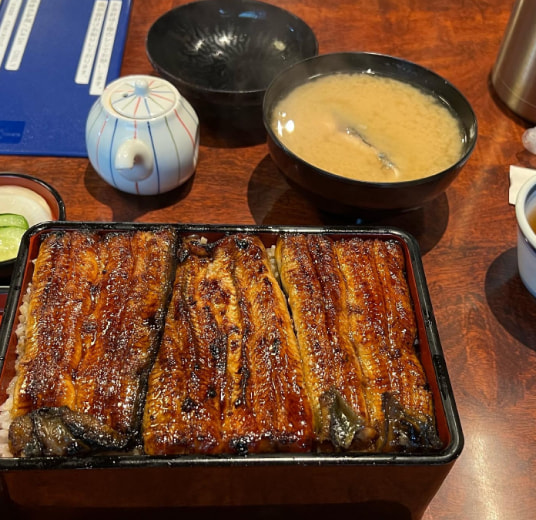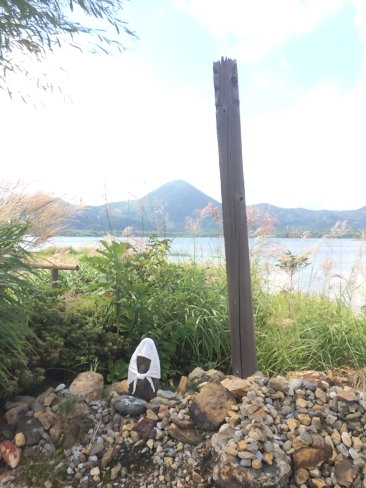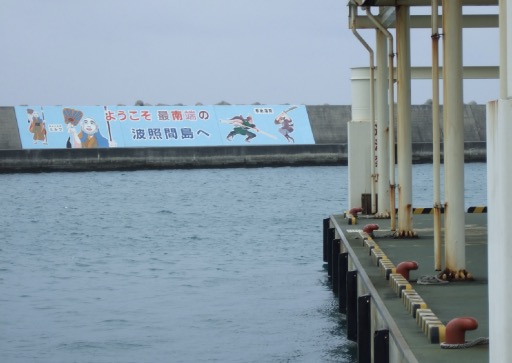
I’m fond of traveling in Okinawa, the southern edge of Jpanese archipelago.
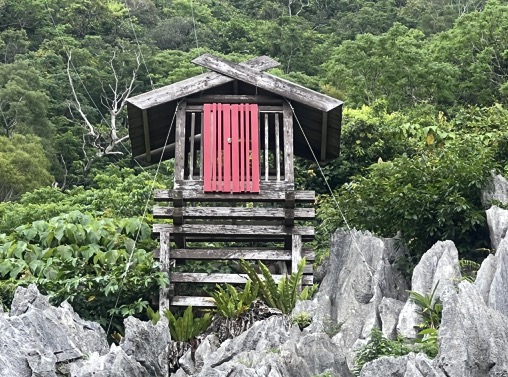
Like Miami in the US, there we can enjoy warm days even in the middle of winter because of its semitropical climate, even when most of other places in the country have to experience cold or snowy days.
This time I’ll try explaining the experience of staying at a very funny, strange inn in Haterumajima, one of Okinawa’s small islets.
I don’t like cold seasons because I can easily get cold, but I like swimming in hot days of summer, and so I’m attracted to Okinawa.
In these years I sometimes go out home to Okinawa, staying and traveling in some of these islands, enjoying the beautiful and comfortable scenery and climate along with exploring the nature, swimming in the sea, and eaten many yummy foods.
Okinawa or Okinawa prefecture consists of many small islands along with the main, rather large island “Honto(本島)” island, which is nearly the center of the islets.
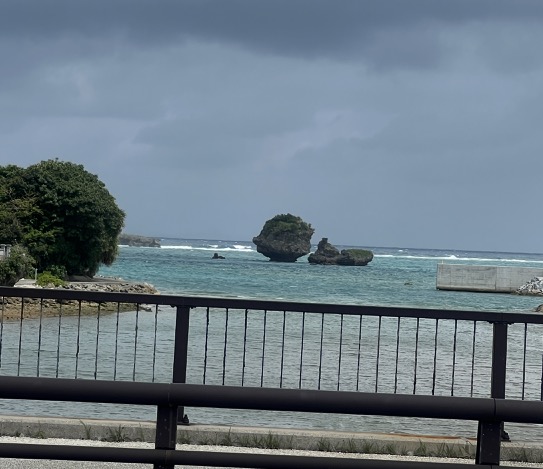
Haterumajima is one of such a small islands of Okinawa, located in the very southern edge of Okinawa isles.
There is no mountain or no river. People in the island mainly produce cane sugar of “kokuto(黒糖)”, and some of them are fishers and Japanese inn “民宿(minshuku)” owners.
Minshuku Tamashiro(民宿たましろ) was one of such inns.
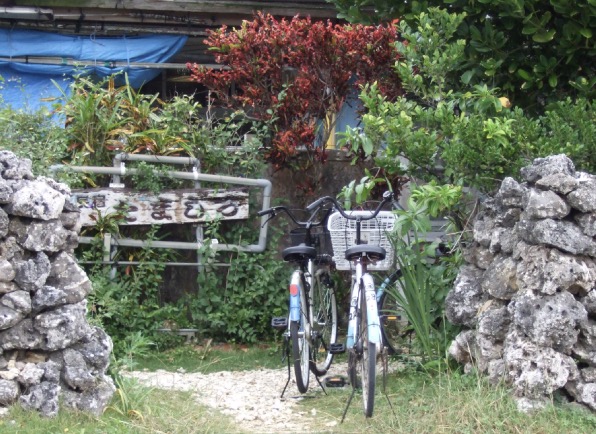
The Japanese on the wooden panel in the picture above reads “民宿たましろ”, or Inn Tamashiro.
The owner Tamashiro ran the inn for a long time, but he passes away several years ago and now the inn is defunct though we can see its house even now.
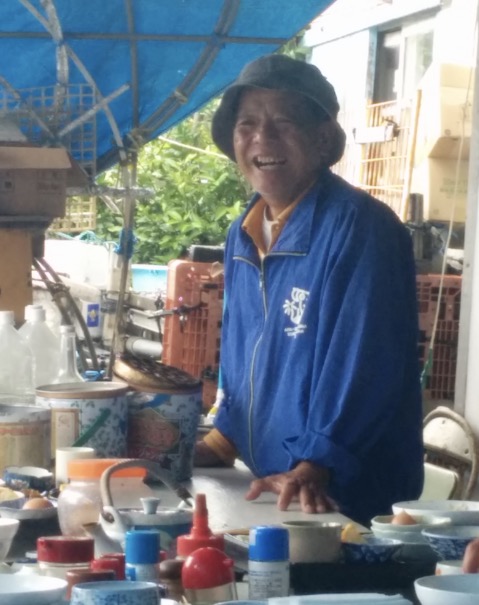
However, this small, defunct inn was surprisingly very popular and famous among not only those who loved traveling Hateruma island, but also many Japanese tourists, especially young, frugal or poor, and curious nationals, of course including me.
Why was such a small, remote and old-looking inn very popular among us?
This was just a seemingly ruined house.
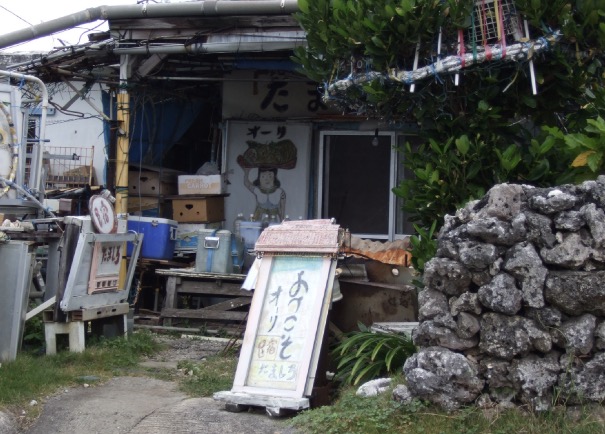
And it had dirty, uncleaned inside, and the toilet was always stinky, although properly cleaned.
Every night you can hear mice running behind the ceiling before you fall asleep.
No doubt those accustomed to posh hotels with high-level welcome and service in Japan would escape very quickly!
However, I’m sure there are steadfast reasons why this rural inn had been very famous and popular.
For one, the meal the Tamashiro owner served each time had very rich and yummy portions.
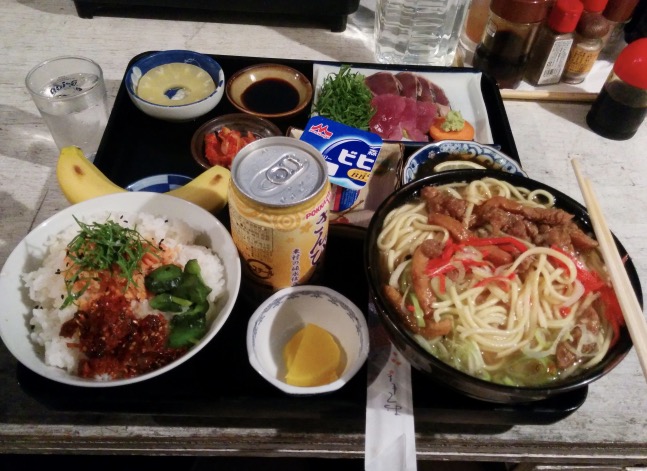
Using as many local and indigenous ingredients as could be gained, he always cooked meals by himself, sometimes with the help of a local young woman.
And also the taste was always so good!
This was no doubt Tamashiro’s main specialty.
Another reason is the warm-hearted owner.
When the ferry from Ishigakijima Isle arrived at Haterumajimako(波照間島港) harbor, the inn’s car he drived waited for tourists there together with other inns’.

And after the car arrived at Minshuku Tamashiro, he quickly took care of the tourists, carry their lagage, and prepare for bathing or food.
Although he was well over seventy when I stayed at Tamashiro many times, he was well enough to do the inn’s work like that just alone.
One more reason I believe is that we can enjoy the linking between guests!
Under such seemingly poor, dirty and casual or informal staying, each guests felt familiar with each other, I surmise.
Indeed, a couple, who acquainted with each other during their stay at Tamashiro, married and their wedding took place just at this inn!
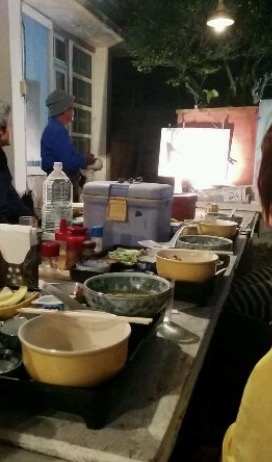
At dinner, the meal was prepared on the table outside the house.
All the guests could get acquinted with each other.
Sometimes the owner also prepared for music, and sang songs together with all the guests.
When I remember those days, I cannot help miss the defunct inn.
Most people desire posh, cleaned and all-facilities-prepared hotels or inns, and usually so do I.
However, such completed facilities for staying can hardly offer the links between guests themselves as well as the owners.
This is quite natural considering many problems with security, but during my stay at Minshuku Tamashiro, the experience of overcoming such risk and getting acquainted with many different guests are still one of my worthwhile treasures.
